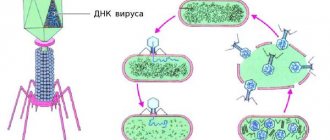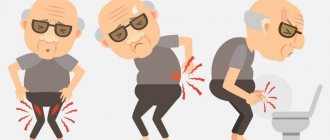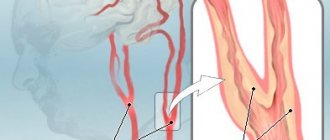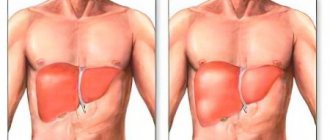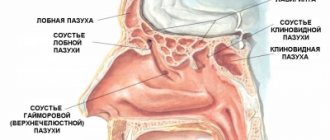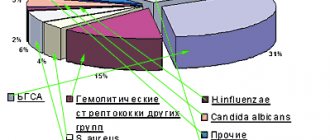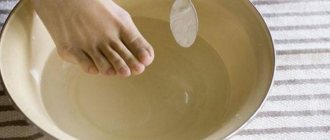Some people are sure that cystitis occurs due to hypothermia, others believe that it is due to microbes. Both are simultaneously right and wrong. Because both conditions are important for the development of the disease: the presence of a pathogen and a decrease in the body’s defenses.
Medical expert at the laboratory of personalized medicine LabQuest Nadezhda Bezemskaya.
This disease is considered to be “female,” but in fact, everyone can get cystitis, regardless of gender and age. However, women actually experience this disease 8 times more often than men.
Profitable loyalty
There is an objective anatomical reason for the fact that cystitis is predominantly female. After all, in the fair sex, the urethra is much shorter and wider than the male one, so the path upward to the bladder for pathogenic microbes becomes shorter and easier. However, for a disease to occur, the penetration of microbial agents alone is not enough. After all, the protective forces of the bladder mucosa, guarded by beneficial lacto- and bifidobacteria, are usually sufficient to give a worthy rebuff to the infection. But if local immunity is weakened, then it’s a different matter. The protective forces of the mucous membrane can be negatively affected, for example, by hypothermia, injury, stress, excessive alcohol intake, promiscuous sex life, poor intimate hygiene, chronic diseases, etc.
By the way, frequent changes of sexual partners for women (and especially young girls with unsettled hormonal levels and not fully formed intimate microflora) are even more harmful than for men. And we’re not just talking about sexually transmitted diseases. After all, the female intimate flora is forced to adapt to the partner’s flora each time (after all, men’s intimate organs normally contain streptococci and other opportunistic flora). At some point, the adaptation process may be disrupted, and then the female microflora will suffer, and against this background, candidiasis, cystitis, and other troubles may arise. Therefore, it is especially important for girls to remain faithful to their only sexual partners, and it is better for very young ladies not to rush into “adult” life.
Traditional treatment
Traditional medicine is used to remove inflammatory processes in the bladder, and this is only possible after prior consultation with a specialist. One of the most common methods in folk medicine is to use a heating pad or hot bottle. Yes, there really is relief, but! only for a while, because the cause has not been eliminated, and the bacteria in the bladder has not disappeared.
It is worth remembering that cystitis after sex requires an integrated approach and should include the use of antibiotics, antispasmodics, uroseptics and other medications.
It is important to follow a home regime, diet and drink plenty of fluids. So cold, the use of cold drinks, caffeine, and spicy foods aggravate the symptoms of the disease.
Not to the pharmacist, but to the doctor!
When customers at a pharmacy ask a pharmacist to sell them “something for cystitis,” they often do not understand that they are doing it to their detriment. After all, this disease (if it really is one) can be different. For example, cystitis can be primary and secondary (that is, arising on its own or as a result of another disease). It can also be infectious and non-infectious. In one case, it is caused by microbes, and in another, inflammation of the bladder mucosa may be associated, for example, with allergies, medications, chemical or thermal damage. In addition, cystitis can be acute and chronic.
In each of these cases, treatment must be strictly individual. And even infectious cystitis can be treated with different drugs, depending on the microbe that caused the infection. An incorrectly chosen medicine or an incorrectly selected dose will lead, at a minimum, to ineffective treatment, and at maximum, to the development of antibiotic resistance in microbes. For this reason, it will be extremely difficult to subsequently cope with microbial inflammation. In addition, such pseudo-treatment can transform acute cystitis into chronic, which is much more difficult and expensive to identify and treat. Therefore, the first rule for cystitis is no self-medication!
Treatment of cystitis after sex
Treatment is both symptomatic and etiotropic in nature (i.e., eliminating the cause of the disease).
For example, the presence of inflammation in the vagina is eliminated with the help of local antifungal and antibacterial drugs. If a sexually transmitted disease is detected, a specialist requires treatment of both partners. If there are anatomical features of the urinary system, the urogynecologist may recommend surgical treatment - urethral transfer, i.e. transposition of the urethra (higher above the vagina), if necessary, the surgeon excises the remains of the hymen, which “stretch” the urethra.
After surgery, recovery takes 7-15 days; in 85% of cases, the operation allows you to forget forever what cystitis after sex is.
Doesn't tolerate delay
The symptoms of acute cystitis are known to everyone: pain in the lower abdomen, frequent painful urination, sometimes even blood in the urine. There are also severe pains that radiate to the anus or perineum. If, in such a situation, you immediately contact a therapist and quickly get tested to confirm the diagnosis, and then begin antibacterial treatment, then within a week you can forget about the disease.
If you delay visiting a doctor, then after 14 days acute cystitis will turn into a chronic form, which can occur with mild symptoms: that is, without severe pain and significant discomfort. And those minor ailments that may occur, many patients courageously endure. Sometimes - for years. Even establishing the correct diagnosis in this case is a big problem, and even more so getting cured. The danger is also that prolonged inflammation in chronic cystitis can eventually lead to cell degeneration and the development of bladder cancer. Therefore, you should go to the doctor as soon as you feel sick, and not sometime later, when there is a rush at work. Or when it gets easier.
Prevention
- As a preventative measure, both partners should be sure to maintain good hygiene.
- Partners should avoid sexual positions that create pressure or friction on the urethra, as well as intense tempos.
- It is necessary to use special lubricants (lubricants) in case of natural deficiency of vaginal mucus.
- Provide timely treatment for gynecological diseases.
- Do not use spermicides or vaginal diaphragms for contraception.
- It is recommended to empty the bladder immediately after sexual intercourse, this allows you to “evacuate” most of the bacteria that have entered the bladder.
- Immediately after contact, drink at least 300 ml of liquid.
Before and after tests
According to standards, treatment of cystitis with antibiotics is prescribed immediately. Before treatment, only a general urine test is required to detect signs of inflammation. And if it is not possible to take it to the laboratory, you can use an express test strip. Next, antibiotics are prescribed. In more than 80% of cases, cystitis is caused by the bacterium E. coli, or Escherichia coli. But opportunistic bacteria (Klebsiella, ureoplasma, streptococcus, staphylococcus) can also be causative agents. They themselves do not cause the disease, but weaken the body’s immune defense, and against this background pathological flora - fungi, bacteria - joins.
And after a course of antibacterial therapy, it is recommended to do a bacterial culture of the urine to make sure that there is no causative agent of the disease, which means that the infection has been cured.
Treating cystitis with folk remedies is less effective than antibiotics. Therefore, warm heating pads, herbs and cranberry juice are best used only in addition to treatment. And also only with the permission of a doctor, because any drugs, even herbal ones, can cause allergies or have individual intolerance. However, medicine knows cases of spontaneous healing of cystitis, when a strong immune system managed to cope with the inflammation on its own. However, playing “roulette” with a disease is quite dangerous, especially if there are effective medications.
How can you quickly relieve the symptoms of acute cystitis?
Women who live with chronic cystitis usually do not consult a doctor with every exacerbation. There are many home treatments and over-the-counter medications that can be used for symptomatic treatment. If everything is done correctly, the condition will improve in a few days without antibiotics or injections.
It is worth adhering to the following recommendations.
- Take over-the-counter pain relievers based on paracetamol and ibuprofen.
- Drink more fluids (cranberry juice is especially good for your health).
- Place a warm heating pad or hot water bottle on your lower abdomen.
- Avoid physical activity during an exacerbation of cystitis;
- Do not drink drinks containing too much caffeine or alcohol.
Certain foods, such as sour tomatoes, hot spices and chocolate, can also make cystitis worse. But before you radically change your diet, it is better to talk to your doctor.
You can also take potassium citrate or sodium bicarbonate supplements. Dietary supplements that make urine less acidic should be selected by a doctor. The use of such products relieves burning and discomfort when urinating. But taking any medications without consulting your doctor is dangerous. Pregnant women and those on a low-salt diet are especially sensitive to medications. For women who have problems with the heart, liver or kidneys, treatment for cystitis is selected individually.
It's time to start an investigation
But sometimes even treatment according to all the rules does not help. Therefore, if cystitis has not gone away within 7 days, it is necessary to undergo further examination, and, perhaps, begin to actively look for concomitant diseases. Among them may be, for example, other diseases of the genitourinary system (such as colpitis, bacterial vaginosis, pyelonephritis, urolithiasis, prostatitis in men), as well as genital infections (trichomoniasis, chlamydia). Patients with diabetes mellitus are also predisposed to cystitis (“sweet” urine promotes the growth of bacteria).
To identify the circle of “suspects,” the doctor must collect an anamnesis. And for this, you need to find out whether cystitis occurred for the first time or not, whether there was hypothermia before the exacerbation, whether all this was preceded by unprotected sex, whether the patient underwent aggressive treatment (chemotherapy, radiation therapy), whether he took medications and what kind, etc.
Depending on this, the doctor can refer the patient to a gynecologist and urologist, and also prescribe a list of necessary studies. As a rule, for chronic cystitis, the following are necessary: ultrasound of the pelvic organs and invasive cystoscopy (a tube with light is inserted into the urethra, and the condition of the mucous membrane is assessed).
Among the tests, you may need a urine sample according to Nechiporenko (helps to exclude or confirm the diagnosis of “pyelonephritis”) and the so-called two-glass urine sample (needed to make a differential diagnosis between cystitis and urethritis).
Ultrasound for cystitis
Ultrasound examination is perhaps rightfully considered a classic method.
Used for various pathologies of the urogenital system, as well as the reproductive organ system.
The method not only provides good diagnostic data, making it possible to cope with the diagnosis even in quite complex cases.
But it is also so harmless that it can be performed without restrictions even by pregnant women and children.
Ultrasound in children is also widely used precisely due to its harmlessness.
For a number of patients, this technique is perhaps the only one allowed.
Since it has practically no contraindications for implementation.
During an ultrasound for cystitis, the doctor assesses the shape of the bladder, looks at the fullness of the organ, and pays attention to various defects in the outline.
However, often an ultrasound examination alone is not enough to diagnose cystitis.
Still, you will have to confirm the results using additional methods, including laboratory ones.
Indeed, it is often not immediately possible to identify long-term serious changes.
And it’s quite difficult to determine their cause in order to start therapy.
Along the beaten track
Judging by statistics, every second woman after the first episode of the disease develops a relapse within a year. And half of them have exacerbations more than 3 times a year. This happens because the initial treatment of acute cystitis was incorrect, and also because, when faced with a new case of the disease, many women, out of habit, take the medicine that helped them the last time. This is a huge mistake! The class of antibiotic must be changed, otherwise harmful bacteria, a small part of which could remain in the bladder, will develop resistance to the drug, and this will lead to the drug no longer working, and cystitis itself becoming chronic.
Therefore, a good doctor, before prescribing an antibacterial medicine, will definitely ask the patient how long ago and what kind of antibiotic he recently took.
BY THE WAY
In the West, cystitis is an inflammatory disease of the bladder and urethra. And in Russia, the disease is divided into cystitis and urethritis. In the first case we are talking about inflammation of the bladder, in the second – about inflammation of the urethra. And although these are details, we will adhere to the domestic view of the disease.
Methods for diagnosing cystitis
Diagnosis of cystitis is carried out using laboratory and instrumental studies.
Laboratory diagnostics
Laboratory diagnosis of cystitis includes a general blood test and clinical urine test. In some cases, a urine test according to Nechiporenko may be required. In order to identify the causative agent of the disease, a cultural study (bacteriological culture of urine) can be carried out.
Ultrasound of the bladder
Ultrasound of the bladder is the simplest and most informative study. It allows you to assess the degree of damage to the bladder wall, the extent of the process, and detect stones and tumor processes that may accompany cystitis.
More information about the diagnostic method
Cystoscopy
In cases of frequently recurring cystitis, cystoscopy may be performed.
More information about the diagnostic method
Sign up for diagnostics To accurately diagnose the disease, make an appointment with specialists from the Family Doctor network.
Symptoms and signs
How does cystitis manifest?
The symptoms of cystitis are very characteristic and allow you to immediately make a correct diagnosis. First of all, this is a frequent urge to urinate (the patient visits the toilet up to several times per hour) and the manifestation of pain at the end of the process of emptying the bladder. Also, the most striking symptoms include:
- feeling of fullness of the bladder even after urination;
- blood or pus in the urine;
- urine with cystitis in women acquires a more pungent odor;
- cloudy urine and the presence of flakes in it;
- pain in the lower abdomen;
- when the infection spreads, including to the upper parts of the urinary system, pain in the kidneys and lower back is possible;
- quite rare, but difficulty in holding urine does occur
If you discover these symptoms, you need to consult a doctor for diagnosis and further treatment, since the advanced form of the disease is fraught with a number of complications.
Expert opinion
Symptoms of cystitis cause a woman not only physical, but also psychological discomfort, leaving an imprint on her personal and social life. Therefore, it is necessary to react to the appearance of the first signs of the disease as early as possible and begin therapy.
Obstetrician-gynecologist of the highest category Oksana Anatolyevna Gartleb
If the inflammation caused by infection spreads to the muscle layer of the bladder, the appearance of interstitial cystitis, which was already mentioned above, may occur. In this case, urine penetrates the walls of the organ, as well as its reflux into the ureters.
symptoms of cystitis in women
If untreated and if the infection spreads vertically, kidney disease-pyelonephritis (Pyelonephritis) may develop.
Why is chronic cystitis dangerous?
Recurrent cystitis significantly worsens a person’s quality of life: it affects social interaction, psycho-emotional state, and intimate life. The disease can cause sleep disturbances and even cause depression. Despite the seeming harmlessness of the disease, it is important to begin treatment in a timely manner.
Complications of chronic cystitis of an infectious nature include the development of an ascending infection (pyelonephritis) and kidney damage. Long-term inflammation of the bladder can cause the formation of persistent changes in its mucosa such as leukoplakia, which, in turn, is a precancerous condition. In addition, there is a possibility of decreased bladder capacity.
Popular questions
Hello.
I have cystitis at an early stage, I started taking medications, curdled, I would even say, liquid discharge appeared, what could this be connected with? There is no pain, no irritation, no discomfort either. I was worried about the appearance of discharge... Hello! Cystitis is an inflammatory disease caused by specific or nonspecific microorganisms. In this case, the infectious factor can spread not only in the urinary system, but also in the reproductive system. Therefore, discharge from the genital tract appeared. For successful treatment, consult a doctor and determine the infection. This will allow you to prescribe rational treatment. At this stage, you can use Gynocomfort gel with tea tree oil. It contains medicinal herbs, bisabolol, which has an anti-inflammatory effect, and lactic acid will replenish the balance of the pH of the environment and lactobacilli. The gel is used in 1 dose 1 time per day for 7-14 days.
Hello, I am diagnosed with chronic cystitis. Relapses every year. I donated urine. Leukocytes were elevated 10-12. Now the culture and urine tests are ideal. Ultrasound of the bladder and kidneys also revealed nothing. She was treated with Monural (2 packets), then with norfolaxicin (10 days). The acute pain went away, but the itching, burning sensation and nagging pain after going to the toilet after bowel movements remained. And before the relapse, there was frequent urination, it felt like the bladder was constantly full even after urinating. Tell me what tests need to be taken and what they are called. If you take it in a private laboratory, what narrower tests should you undergo and which doctors should you contact? What do you need to go through? I was going to get pregnant... And how to support the body before taking tests so that acute pain does not return? I am now drinking furadonin, herbs, cystone, phytolysin. Thank you in advance.
Hello! This is a disease of the urinary system, so examination, treatment and rehabilitation before planning pregnancy should be done by a urologist.
Hello! I take Furamag and Canephron in parallel for cystitis, the question is, is it possible to take Canephron during menstruation? As far as I know, lovage is not recommended for uterine bleeding, but it is part of Canephron, nothing is written in the contraindications, but I decided it was better to ask a specialist, thanks in advance for the answer!
Hello! The drug Canephron contains a combination of several medicinal herbs in therapeutic doses, so there will be no increase in the volume of menstruation or uterine bleeding. The drug can be taken during menstruation.
Good afternoon, Oksana Anatolyevna! I was tormented by cystitis after PA, discomfort (irritation) during and after PA, opportunistic flora, cystoscopy results were good. Which gel is better to use?
Hello!
Postcoital cystitis most often develops due to lack of hydration of the genital organs and microtrauma of the mucous membranes. I recommend using Ginocomfort gel with mallow extract before contact as a lubricant and prophylactic agent. The frequency and duration of use are not limited. For an accurate diagnosis, contact a specialist
